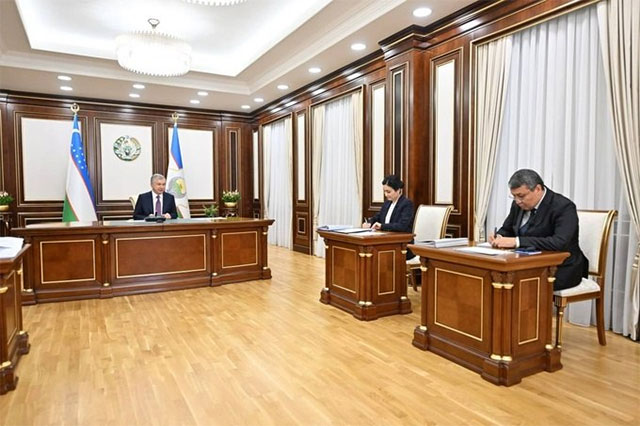
President Supports Establishment of Independent Bureaus and Uzbekistan’s Chamber of Forensic Experts
President Supports Establishment of Independent Bureaus and Uzbekistan’s Chamber of Forensic Experts
Tashkent, Uzbekistan (UzDaily.com) — On 5 September, President Shavkat Mirziyoyev reviewed issues related to the development of the forensic examination system in Uzbekistan.
Currently, the Khadichi Suleymanova Center conducts 64 types of expert analyses, but only half of these are available in regional areas. Plans include expanding the regional network, increasing the number of types of examinations from 15 to 25, introducing 3D modeling technologies for traffic accidents, conducting research on video and photographic equipment, and transitioning to a full electronic document workflow between investigative bodies and forensic institutions.
The President expressed support for initiatives to develop private forensic expertise, establish independent expert bureaus, and create the Chamber of Forensic Experts of Uzbekistan.
Justice Minister Akbar Tashkulov told Uzbekistan 24 TV channel that strengthening forensic institutions is a key component of ensuring justice. He noted that expert opinions often become decisive evidence in investigations and the consideration of highly specialized cases.
“When it comes to holding someone accountable or resolving legal matters, expert conclusions play a crucial role. This is impossible without modernizing the technical base of forensic institutions and implementing advanced software solutions,” the minister emphasized.
Tashkulov added that presidential directives have already been reflected in a resolution outlining measures to equip forensic institutions with modern equipment and software.
A longstanding problem has been the outdated methodology for conducting accident-related examinations. “Citizens often could not receive timely expert reports because the procedures relied on old approaches. Today, thanks to new technologies, an incident can be transformed into a 3D model within minutes. Specialized programs visualize the situation and suggest possible solutions, greatly improving the accuracy and reliability of conclusions,” he said.
The minister also highlighted excessive centralization in forensic services. Investigators often have to send materials to Tashkent for complex examinations, delaying processes and potentially affecting the fate of individuals under investigation.
To address this, regional development will be a priority: electronic data exchange between agencies will be established, local laboratories created, and the range of examinations conducted locally expanded. “Specific programs have already been developed to allow the growth of forensic expertise not only in the capital but also in the regions,” Tashkulov said.
Additionally, the President supported measures to simplify citizens’ access to state services. Notably, notarization will no longer require presenting a passport, with identity verification conducted via Face-ID. Civil registry offices will no longer require medical certificates for marriage registration, and military commissariats will stop requesting documents for changes of residence.